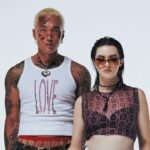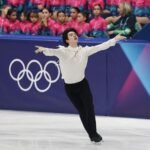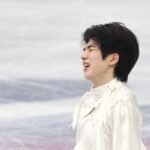South Korea’s top automaker Hyundai Motor Group plans to require stricter environmental, social and governance rule compliance from its partners starting next year in line with a strengthened global green push in the automobile industry.
The automotive group is working on a new standard subcontractor contract to be applied from 2025, industry sources said on Monday.
Under the new contract, its partners will be required to comply with strengthened ESG rules, including a higher renewable energy use rate, workforce diversity, the protection of local residents’ rights and a specific timeline to meet greenhouse gas reduction goals.
The strengthened ESG rules will initially be imposed on its primary partners before applying them to second and third-tier contractors.
The automotive group’s two car-making units, Hyundai Motor Co. and Kia Corp. recently notified the conglomerate’s decision to its partners, sources said.
(Graphics by Sunny Park)
Hyundai Motor Group has some 5,000 partners, including 300 primary contractors.
If they fail to meet the new tougher rules, they could be excluded from the list of Hyundai Motor Group’s subcontractors, sources said.
“If both sides agree to the new rules and sign the contract, it will be legally binding,” said a Korean auto parts maker and Hyundai supplier. “We have been told that if the ESG score comes below 70 out of 100, we may not be able to renew our contract next year.”
Hyundai Motor Group is also known to have asked its partners to establish a dedicated ESG division within their companies.
EUROPE’S CSDDD
Hyundai’s move to strengthen its ESG rules for its partners comes amid a global push for automakers to adopt greener technology and embrace sustainable growth.
In Europe, one of the Korean automaker’s top markets, the Council of the European Union approved a political agreement in May that requires carmakers to abide by a directive on corporate sustainability due diligence.
The aim of the Corporate Sustainability Due Diligence Directive (CSDDD) is to foster sustainable and responsible corporate behavior in companies’ operations and across their global value chains.
The new European rules, set to be implemented in 2027, will ensure that companies identify and address adverse human rights and environmental impacts of their actions, their subsidiaries and their business partners inside and outside Europe.
Any violating company will be slapped with a fine of at least 5% of its entire sales revenue.
Regarding this, sources said Hyundai notified its partners that the automotive group could be subject to a fine of up to 8 trillion won ($5.8 billion) if it’s in violation.
Hyundai Motor sold 4.22 million vehicles globally last year, of which some 15.1% or 636,000 units were sold in Europe.
Samsung Electronics 2022 Sustainability Report
“Automakers are even asked to verify the green label on products of their partners,” said a Korean carmaker official.
VOLKSWAGEN, BMW, MICROSOFT
Other global automakers are also active with the ESG management of their supply chains.
Volkswagen recently notified its battery parts suppliers of its decision to exclude those partners, which do not make cathodes using renewable energy, from bidding.
BMW has also made clear that its partners will be subject to its ESG rules. Some 150 partners are said to have been excluded from BMW’s supply chain over the past three years due to their insufficient ESG standards.
The overall manufacturing sector faces tougher ESG rules globally.
Korea’s tech giant Samsung Electronics Co., which is the world’s top memory chipmaker and smartphone and home appliance maker, is known to have received a request from Microsoft to use 100% carbon-free electricity by 2030.
By Jung-Eun Shin and Jae-Fu Kim
newyearis@hankyung.com
In-Soo Nam edited this article.















